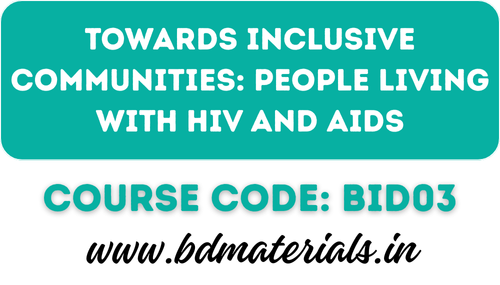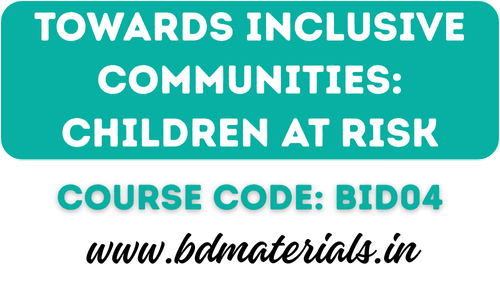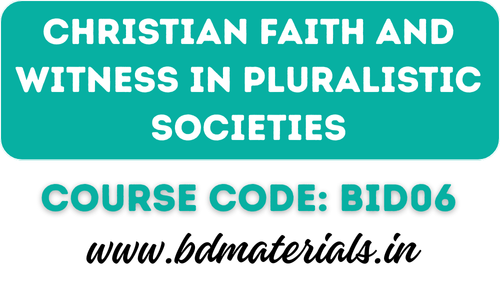Course Code: BID07
Eco Justice Theologies
BD III, Semester 1, 2 Credit Hours, College Paper, No Final Examination
(It is Compulsory for the College to submit the Marks through the Online Portal)
Course Objectives:
- To enable the students to understand critically the distress of earth from the vantage points of the subsistence communities who are disproportionately affected by the crisis and to become involved in the civil society interventions to resist the abuse of nature.
- To invite the students to critically look at our traditions of theology and biblical interpretations which have legitimized the plunder of Earth, and to engage in deconstructing the doctrines and scriptures and traditions, using the hermeneutical key to the lived experiences of the Dalits, Tribals, Adivasis, women, poor, and other marginalized communities.
- To inspire the students to form concerned groups in their respective theological colleges, faith communities, and civil society, and to engage in vocations of eco-justice ministries both in church and society in solidarity with the social movements of our times.
- To equip the students to transform the churches—local congregations—into intentional communities of creation-care and healing through their informed, committed, and creative involvement and leadership.
Course Requirements:
No final examinations. Class work, seminars, papers, projects, and other methods would be determined to examine students. The College has to send their marks in a 60% and 40% pattern.
Course Outline:
Unit 1: From Ecology to Eco-Justice
- Ecological crisis as a crisis of faith and justice issue.
- Modern Science and Technology and its violence against earth.
- Colonialism, Globalization, Development, and the Colonization of Jal, Jungle, and Jamin.
Unit 2: Analytical Mediation
- Deep Ecology.
- Social Ecology.
- Gandhian Philosophy.
- Eco-feminism.
- Dalit/Tribal/Adivasi perspectives on eco-justice.
Unit 3: Subaltern Eco-Justice Movements
- Case studies of select subaltern eco-justice movements.
Unit 4: Eco-Justice Theologies and Ethics
- Ecological sins of Christian Theology and Biblical Interpretation.
- Eco-justice Hermeneutics.
- Eco-justice Theologies.
- Earth Ethics.
Unit 5: Towards Eco-Justice Ministries and Congregations
- Eco-justice Spirituality.
- Eco-justice liturgy and proclamation.
- Eco-justice congregations.
- Eco-justice interfaith engagements.
Required Readings:
- K.C. Abraham, Eco-Justice: A New Agenda for Church’s Mission (Bombay: BUILD, 1992).
- Aruna Gnanadason, Listen to Women, Listen to the Earth (Geneva, WCC Publications, 2005).
- Baastian Wielegna, Towards an Eco-just Society (Bangalore: CSA, 1999).
- George Mathew Nalunnakkal, Green Liberation (Delhi: ISPCK, 1999).
- George Zachariah, Alternatives Unincorporated: Earth Ethics from the Grassroots (London: Equinox, 2010).
- Wati Longchar, Returning to Mother Earth: Theology, Christian Witness and Theological Education: An Indigenous Perspective (Kolkata: PTC).
Suggested Readings:
- Ariilampalain, Stephen. ‘Mission in the Context of Globalization.’ In Proceedings of the 6th International Graduate Students’ and Scholars’ Conference, Indonesia, 2014, 523-535.
- Cynthia Moe-Lobeda, Resisting Structural Evil: Love as Ecological-Economic Vocation, Minneapolis: Fortress Press, 2013.
- Daniel Chetty, ed., Ecology and Development: Theological Perspectives.
- Dareeju, Leslie. ‘Globalization and the Supermarket Industry in Relation to the Small Farmers of Sri Lanka.’ Sri Lankan Journal of Theological Reflection, Vol. 7, no. 1 (June 2013): 31-48.
- David Rhoads, Earth and the Word: Classic Sermons on Saving the Planet (New York: Continuum Press, 2007).
- Rajula Annie Watson, Development and Justice: A Christian Understanding of Land Ethics (New Delhi: ISPCK, 2004).
- Wolfgang Sachs, ed., Development Dictionary: A Guide to Knowledge as Power (London: Zed Books, 1992).
- Christopher Key and Mary Evelyn Tucker, eds., Hinduism and Ecology: The Intersection of Earth, Sky, and Water (Cambridge: Harvard University Press, 2000).
- John A. Grim, Indigenous Traditions and Ecology: The Interbeing of Cosmology and Community (Cambridge: Harvard University Press, 2001).
- Paul F. Knitter, One Earth, Many Religions: Multifaith Dialogue and Global Responsibility (Maryknoll: Orbis Books).
- Gabriele Dietrich, A New Thing on Earth (Delhi/Madurai: ISPCK/TTS, 2001).
- George, Samuel. “Water Justice: A Christian Theological-Ethical Perspective.” Aikyatha XII, no. II (October 2011): 10-11.
- George, Samuel. “God of Life, Justice and Peace: A Disability Informed Reading of Christology.” The Ecumenical Review 64, no. 4 (December 2012): 454-63.
- Gine, Pratap Chandra. “Globalization: A Challenge to Theological Education in Asia,” The Journal of Theologies and Cultures in Asia, vol. 2, 2003, 183-197.
- Heather Eaton and Lois Ann Lorentzen, eds., Ecofeminism and Globalization: Exploring Culture, Context and Religion (Lanham: Rowman & Littlefield Publishers, Inc., 2003).
- Ivone Gebara, Longing for Running Waters: Ecofeminism and Liberation (Minneapolis: Fortress Press, 1999).
- Ivy Singh, Voices from Narmada: Doing Eco-feminist Theology (Delhi: ISPCK, 2009).
- Maria Mies and Vandana Shiva, Ecofeminism (New Delhi: Kali for Women, 1993).
- Rosemary Radford Ruether, ed., Women Healing Earth: Third World Women on Ecology, Feminism, and Religion (New York: Orbis Press, 1996).
- Vandana Shiva, Staying Alive: Women, Ecology and Survival in India (New Delhi: Kali for Women, 1988).
- V.J. John, The Ecological Vision of Jesus: Nature in the Parables of Mark (Tiruvalla and Bangalore: CSS/BTTBPSA, 2002).
- Wati Longchar, An Emerging Asian Theology: Tribal Theology: Issues, Method and Perspective (Jorhat: Eastern Theological College, 2000).
- Moanungsang. Religious Significance of Tree in Sruti Text: An Ecological Relevance in India Today. LAMBERT Academic Publishing: Germany, 2012. pp. 1-98.
- Norman Habel, Readings from the Perspective of Earth (Cleveland: The Pilgrim Press, 2000).
- Larry Rasmussen, Earth Community, Earth Ethics (New York: Orbis Books, 1996).
- Leonardo Boff, Cry of the Earth; Cry of the Poor (New York: Orbis Books, 1997).
- Michael Northcott, The Environment and Christian Ethics (Cambridge: Cambridge University Press, 1996).
- Praveen PS, Perumalla. “Exploitation of Land and Natural Resources: Is it not Distortion of Human Relationships?” in Theology for Your Times: Reflections on Land Environment, Human Rights and Justice, Jubilee Edition (Bangalore: Ecumenical Christian Centre Indian School of Ecumenical Theology, December 2013), Num. 16, pp. 92- 102.
- Praveen PS, Perumalla. “Biblical Resources for Alternatives to Neo-Liberal Globalisation: Reflections from the Book of Daniel.” in NCCI Review (Nagpur: NCCI, January 2006), Vol. CXXVI, pp. 29-45.
- Paulose Mar Gregorios, The Human Presence: An Orthodox View of Nature (Geneva: WCC, 1978).
- Sallie McFague, Life Abundant: Rethinking Theology and Economy for a Planet in Peril (Minneapolis: Fortress Press, 2001).
- Victus, Solomon. Eco-Theology and the Scriptures: A Revisit of Christian Response (Eng.) New Delhi: Christian World Imprints, 2014.
- Victus, Solomon. Jesus and Mother Economy: An Introduction to the Theology of J. C. Kumarappa (Eng.) TTS and ISPCK, New Delhi, 2007.
- Victus, Solomon. Religion and Eco-Economics of Dr. J. C Kumarappa: Gandhism Redefined (Eng.) New Delhi: ISPCK, 2003.
- Victus, Solomon. “Economy of Permanence” in DEGROWTH: A Vocabulary for a New Era (eds) by Giacomo D’Alisa, Federico Demaria & Giorgos Kallis, London and New York: Routledge, 2014.
- Victus, Solomon. “Visitation Of Conservatism in the Talks of Ecological Conservatism” in Asian Horizons: Dharmaram Journal of Theology, Bangalore, Vol. 8, No. 3, September 2014.
- Victus, Solomon. “Vision of the Biblical City of God and Pragmatic Issues Involved in Understanding Ecologically” in Asian Horizons: Dharmaram Journal of Theology, Bangalore, Vol. 7, No. 2, June 2013.
- Victus, Solomon. “2013-International Year of Water Co-operation: An Introductory Theological Reflection” A paper presented to the M.Th Integration Seminar held on 25th July 2010, at TTS.
- Victus, Solomon. “Indian Conservative Evangelicals and Modern Market Expressions” in Discipleship and Dialogue: New Frontiers in Interfaith Engagement (Essays in Honour of Dr. Israel Selvanayagam) eds by Eric J. Lott, M. Thomas Thangaraj & Andrew Wingate, New Delhi: ISPCK, 2013.
- Victus, Solomon. “Two Trees in the Middle of the Garden: An Ecological Rereading” NCCI Review, Nagpur: NCCI, Vol. CXXXII, No. 10, Nov. 2012.
- Victus, Solomon. “Integrating the Disintegrated: Towards a Methodological Exploration from Eco-economies Perspective” A paper presented at D.Min Methodological Seminar, ACTS: Bangalore, Sept, 2012 in Learn to Live: Essays in Honour of Dr. Ken Gnanakan, ed. by Paul Mohan, Edward Ramani, John Mohan Rasu, Richard Gnanakan, James, Bangalore: Theological Book Trust, Oct, 2012.
- Victus, Solomon. “Key Hurdles of Eco-Theology in Theological Conversation.” in Margins in Conversation: Methodological Discourses in Theological Conversation edited by Joseph Prabhakar Dayam and Mohan Larbeer, Bangalore: BTESSC, April 2012, p. 169-186.
- Victus, Solomon. “Is Christ for Risk Investment in the Share Market?” Peoples Reporter, Mumbai, Oct. 25-Nov. 10, 2008.
- Victus, Solomon. “Spirituality of Sustainability: Towards Conservation of Resources” A.JTR, Madurai, Vol. XX, July – December 2007.
- Victus, Solomon. “Foundations of Indian Eco-Principles by J.C. Kumarappa,” AJTR, Madurai, Vol XIX, No. 2.6, July-December, 2006.
- Victus, Solomon. “Water-A Privatized Commodity; An Overview of Recent Policies” in Waters of Life and Death: Ethical Theological Responses to Contemporary Water Crises Edited by Sam P. Mathew & Chandran P. Martin, New Delhi: ISPCK/UELCI, 2005.
- Victus, Solomon. “A Theological Reflection on Water” in Waters of Life and Death: Ethical Theological Responses to Contemporary Water Crises Edited by Sam P. Mathew and Chandran P. Martin, New Delhi: ISPCK/UELCI, 2005.
- Victus, Solomon. “Economy of Enoughness” Gandhi Marg, New Delhi, Vol. 24, No. 1. April-June, 2002.
- Victus, Solomon. “Economic and Ecological Reasons for Promoting Self-Reliance,” AJTR, Vol. VIII, No. 1, Jan-June 1994.
- Watson, Hubert, Eco-justice Implications for Faith and Public Action (Bangalore: BTESSC, 2017).
- Eapen, Viji Varghese et al., ed., The Word and the World: Biblical Reflections on Climate Change (Chennai/Bangalore: CSI/BTESSC, 2013).
- Vashum, Yangkahao. Tribal Ecology: A Search for Ecological Values from the Cultures and Practices of the Tribes of North East India. Tribal Study Series, No. 20 (Jorhat: ETC Programme Coordination, 2012). Co-edited with Razoulselie Lasetso & Marlene Marak.
- Lalrinawma, V.S. Globalization: A Threat to the Developing Nations in Asia (Mizoram Journal of Theology, Vol II, No. 1, January-June, 2011, pp. 10-36).
- Lalrinawma, V.S. Environmental Issues Taught by Major Religions & Their Response to Ecological Crisis, PCI Herald, Shillong, 2014, pp. 1-19.
Friendly Note
Bachelor of Divinity Materials is your one-stop resource for comprehensive Biblical studies, designed to support students pursuing a Bachelor of Divinity (B.D.) and other theological courses. Our website is a dedicated platform that provides access to the full syllabus of the Bachelor of Divinity course along with detailed answers, ensuring a thorough understanding of every subject and topic covered in your curriculum.
Here, you will find a vast collection of assignments, study guides, articles, and research papers meticulously curated to assist you in excelling academically. The platform also features a rich selection of theological books, journals, and resources spanning diverse subjects such as Old Testament, New Testament, Systematic Theology, Church History, Biblical Languages, and Pastoral Studies.
To make your learning experience convenient and accessible, we offer downloadable PDFs of study materials, including books and journals, allowing you to learn anytime, anywhere. Whether you are preparing for exams, writing assignments, or conducting in-depth research, these resources are tailored to meet the needs of both students and scholars in biblical and theological studies.
With a commitment to empowering theological learners, our mission is to provide high-quality, authentic, and practical study materials. Explore Bachelor of Divinity Materials to grow spiritually, academically, and intellectually as you deepen your understanding of God’s Word and Christian doctrine. This platform is a valuable resource for aspiring ministers, pastors, and anyone dedicated to the study of theology and biblical teachings.






